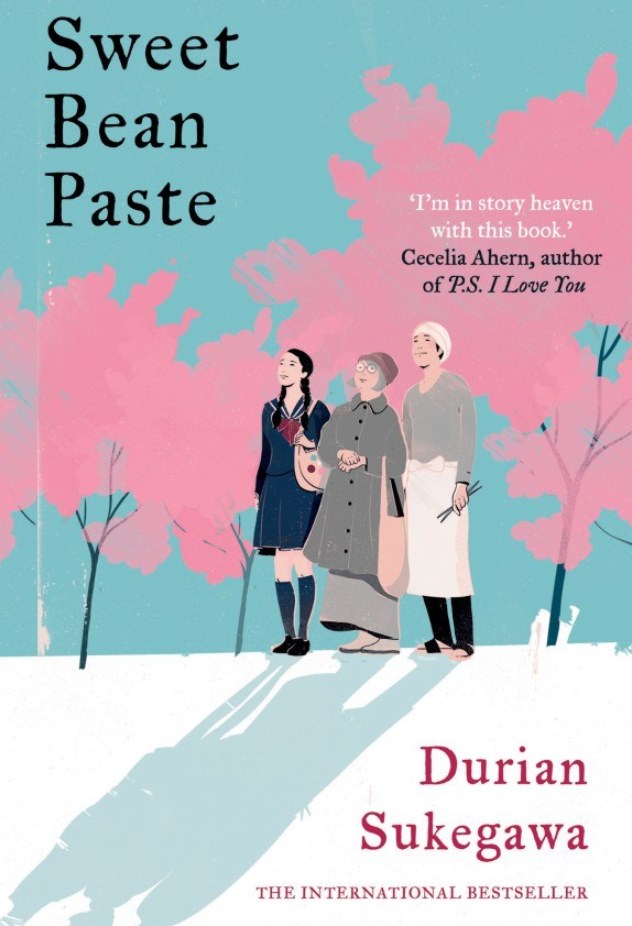After my big disappointment with The Darkest Secret by Alex Marwood, I decided to read something different for a change. So instead of thrillers, I opt for Sweet Bean Paste by Durian Sukegawa, an exploration of the burden of the past and the redemptive power of friendship in an unforgiving society. Translated into English for the first time by Alison Watts, Durian Sukegawa’s beautiful prose is capturing hearts all over the world.
Sentaro considers himself a failure. His dream of becoming a writer was derailed by youthful folly and he spent time in prison. He works in a small confectionary shop making and selling dorayaki, pancakes filled with sweet bean paste. He only has this job because he owes the late owner’s widow a debt and is paying it off by running the shop. Drinking excessively, he has seemingly given up all hopes and is just drifting through his life without any ambition.
One spring, Tokue, an elderly woman with disfigured hands, offers to work for Sentaro for minimal pay but Sentaro declines. Tokue is persistent and finally Sentaro reluctantly obliges after tasting the divine bean paste made by Tokue.
But he still has reservations about Tokue because of her disfigured hands, and insists that she stays in the back of the shop so as not to be seen by the customers.
Tokue begins to teach Sentaro the secret of her bean paste. Their friendship blossoms but soon social pressures rear their ugly heads and Tokue’s dark secret as an outcast is revealed, As a child she contracted leprosy and was incarcerated in a leper community. Japan’s regressive laws concerning leprosy was changed only in 1996. As a result, Tokue spent her whole life in the community and isolated from society despite having been cured 40 years prior. The experience taught her patience and perspective, two things Sentaro lacks.
The prejudice against lepers still lingers and when the owner’s widow discovers that Sentaro has employed a former leper without telling her, she fears for her business and tells him that Tokue has to go.
The book is tinged with sadness, yet its main message is positive, showing that even a life that has seen great pain and suffering, can have meaning. Tokue’s hardships helps Sentaro to put his own life in perspective, and her lessons about listening show Sentaro that there are other ways in which he can find his voice.
This is an easy book to read and I finished it within a day. Read it and be touched!
 CY@CY Says Welcome to my dreamscape. Where a Lim is also a Ling.
CY@CY Says Welcome to my dreamscape. Where a Lim is also a Ling.
